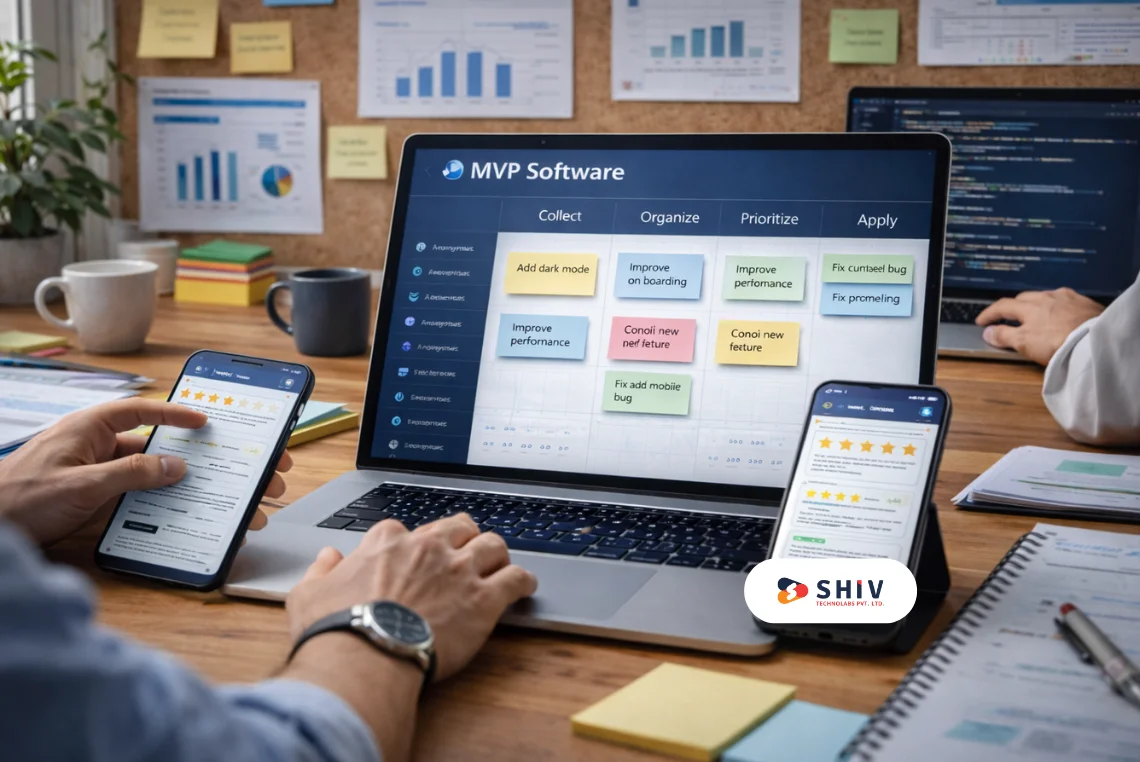Table of Contents
Thinking about starting a finance business but not sure where to begin? You’re not the only one. Many entrepreneurs feel the same way. The difference is, some jump in — and that’s where opportunity lives.
Let’s put things in perspective.
The global fintech sector is projected to hit $324 billion by 2026. That’s massive. Digital payments already crossed $9 trillion in 2023, and by 2030, nearly 7 out of 10 banking services are expected to run on mobile-first platforms.
What does this mean for you? It means the future of money won’t just be written by big banks. It’s being shaped by startups and SMEs with fresh ideas — people who spot everyday financial problems and build simple, digital-first solutions.
And here’s the best part: you don’t need to come from a banking background. Whether it’s a mobile app that tracks savings, a lending platform for small shops, or a digital gold service, opportunities are wide open.
This blog pulls together 30 of the best finance business ideas for startups and SMEs. They’re practical, simple to understand, and grounded in real trends.
By the end, you’ll not just have ideas but you’ll have a clear understanding of where you can begin.
Why Finance Business Ideas Are in Demand

Money is no longer managed the way it used to be. People expect faster, cheaper, and simpler options — right from their phones. That shift has opened doors for entrepreneurs.
Here are some reasons why finance business ideas are hotter than ever:
- Digital payments on the rise → $9 trillion in 2023, set to double in five years.
- Mobile-first banking → By 2030, almost 70% of banking services will live on mobile apps. [Data Source: Imarticus]
- Trust in financial startups → Lower fees, simpler apps, and clear processes are pulling users away from traditional banks.
- SMEs driving adoption → Small firms are jumping into cloud-based accounting, payroll, and lending tools.
- Faster access to credit → Peer-to-peer lending and digital loan platforms are filling gaps left by slow banks.
In short, people want services that save time, cut costs, and make money management less of a headache. That’s exactly where fintech startup ideas step in.
Top Finance Business Ideas for Startups and SMEs

The finance sector isn’t short of opportunities. But here’s the trick: you don’t have to compete head-on with big banks. Instead, solve small problems that people face every single day. That’s where startups and SMEs shine.
Here are the top 30 finance business ideas worth considering:
1. Mobile Banking Apps
Remember the days when paying a bill meant standing in line at a branch? Those days are fading. Mobile banking apps let people transfer money, pay bills, and check balances on the go.
Startups entering this space can stand out with smart extras — think savings goals, multi-language support, or reminders for due payments.
2. Peer-to-Peer Lending Platforms
Banks say no to many small borrowers, and that’s where peer-to-peer lending steps in. These platforms connect people who want to lend with those who need funds.
It’s faster, often cheaper, and more transparent. For startups, keeping fees fair and processes simple can quickly build a loyal user base.
3. Digital Wallet Services
Think about how often you pay with cash compared to your phone. Chances are, your phone wins. Digital wallets like Paytm, Google Pay, and PayPal have made quick payments the norm.
But there’s still room for new players. A startup can add features like loyalty rewards, QR-based payments, or even a “split-the-bill” option for friends.
4. Investment Advisory Platforms
Investing feels complicated for beginners. An online advisory platform makes it easier by recommending stocks, ETFs, or mutual funds based on user goals.
Add AI-driven tools, and you can provide advice without the high fees of traditional advisors. Millennials in particular prefer digital-first services, which makes this one of the smartest fintech startup ideas for the next decade.
5. Crowdfunding Platforms
Great ideas often die because of a lack of funds. Crowdfunding solves that. Platforms like Kickstarter and Indiegogo have proven how powerful collective support can be. But there’s room for niche players — real estate, social causes, even student projects.
6. Robo-Advisory Solutions
Not everyone can afford a financial advisor, but many can use a robo-advisor. These platforms use algorithms to manage portfolios, adjust risk levels, and even rebalance assets automatically.
Low fees make them attractive to first-time investors. For startups, this idea offers both scalability and wide appeal.
7. Cryptocurrency Exchange Platforms
Whether you love or doubt crypto, you can’t ignore it. Millions trade Bitcoin, Ethereum, and other coins every day. A crypto exchange helps people buy, sell, and store digital assets securely.
Startups can differentiate by focusing on trust — strong security, transparent fees, and user-friendly design. Blockchain continues to expand, making exchanges one of the most profitable options for financial startups.
8. InsurTech Solutions
Insurance paperwork? Nobody likes it. That’s why InsurTech is growing. Digital platforms that compare policies, handle claims, and send reminders simplify the process.
Health, travel, and auto insurance are great niches for startups. Add features like AI-powered claim approvals or chat support, and you’ll win customer trust quickly.
9. Wealth Management Apps
Wealth management isn’t just for the wealthy anymore. People want apps that track income, expenses, and investments in one dashboard.
Startups can go further with tax calculators, budgeting advice, and personalized savings tips. For SMEs, offering such tools to employees can also add value.
10. Digital Accounting Services
SMEs often can’t afford full-time accountants, yet they need reliable bookkeeping. Cloud-based accounting platforms fill this gap with payroll, invoicing, and tax features.
QuickBooks and Xero have paved the way, but regional startups can cater to local tax laws and languages.
Also Read: What Startups Must Know Before Choosing a Finance Software Partner?
11. Credit Scoring Platforms
Ever applied for a loan and got rejected without knowing why? Traditional credit checks often miss important details.
A smarter scoring platform can analyze things like rent history, phone bills, or even eCommerce purchase records. This opens doors for people with little or no formal credit history.
12. Personal Finance Apps
People know they should budget, but many still don’t. That’s why personal finance apps are popular. They help track expenses, set savings goals, and manage bills in one place.
Startups can make these apps even more engaging by adding gamified savings, AI-based tips, or reminders.
13. Cross-Border Payment Solutions
International transfers are often slow and costly. Businesses and freelancers lose both time and money waiting for payments. Startups can build faster, cheaper, and transparent platforms for cross-border transactions.
Companies like Wise (formerly TransferWise) have shown how much people value transparency in fees.
14. Payroll Management Systems
Payroll mistakes can cause chaos for SMEs. Late salaries or miscalculated deductions frustrate employees and hurt trust.
Digital payroll systems solve this by automating salary transfers, taxes, and compliance. Adding features like digital payslips or benefits tracking can make them even more useful.
15. BNPL (Buy Now, Pay Later) Platforms
You’ve probably seen this while shopping online — “Pay in 3 easy installments.” That’s BNPL in action. Shoppers love the flexibility, and retailers see higher sales.
Startups entering this space must balance customer convenience with responsible lending practices, but the potential is huge in eCommerce.
Know More: BNPL App Development – Cost & Process
16. Tax Filing Platforms
Tax season stresses almost everyone. Startups can ease the burden with platforms that automate filing, check errors, and connect directly with government systems.
Adding features like real-time chat support or AI error detection could set a new startup apart from generic tax tools.
17. Blockchain-Based Finance Solutions
Blockchain isn’t just about crypto. It’s about trust. Smart contracts, secure payments, and fraud prevention are just a few ways it’s changing finance.
Startups that build blockchain-powered lending apps, identity tools, or payment systems can ride this wave while offering something traditional finance lacks — transparency.
18. SME Loan Platforms
Banks often hesitate to lend to small businesses, creating a funding gap. Online SME loan platforms can solve this by offering quicker approvals and flexible repayment.
Startups can add value by integrating accounting data, cash flow insights, or even AI-driven risk checks to make lending fair and fast.
19. Digital Gold Investment Platforms
Gold has always been a safe investment, but storing physical gold isn’t easy. Enter digital gold platforms — they let users buy, sell, and track gold online.
Startups can make this more attractive by allowing micro-investments, like buying gold worth just a few dollars, making it accessible for everyone.
20. Stock Trading Apps
Stock trading used to be for professionals, but apps changed the game. Now anyone can start trading with just a phone.
Startups can build platforms with real-time prices, learning tools, and easy buy/sell options. Adding gamified challenges or social trading (copying trades of experts) makes it engaging.
21. Crowdlending for Real Estate
Real estate projects usually demand large investments, which keeps small investors out. Crowdlending platforms break that barrier by pooling funds from multiple backers.
This way, even a small contribution earns a share of returns.
22. Microfinance Solutions
In many developing regions, people lack access to banks but still need small loans. Microfinance platforms meet this need by providing funds for farming, education, or local businesses.
Startups working in this space can create real social impact while running a profitable business.
23. Invoice Financing Platforms
Cash flow is a constant struggle for SMEs, especially when clients delay payments. Invoice financing solves this by letting businesses borrow against unpaid invoices.
Instead of waiting 60 or 90 days, they get working capital instantly.
24. Wealth Analytics Dashboards
Numbers can be confusing without context. A wealth analytics dashboard brings clarity by turning raw data into charts and insights.
Businesses can see cash flow, while individuals can track expenses and investments in one place.
25. Virtual Financial Advisors
Imagine having a financial advisor available 24/7 at a fraction of the cost. That’s what virtual advisors offer through AI-powered chatbots.
They guide users on saving, budgeting, or investing in real time. Startups combining natural language with financial expertise can tap into this growing demand.
26. Green Finance Solutions
Sustainability is no longer optional — it’s a priority. Green finance platforms support eco-friendly investments, renewable energy projects, or carbon credit trading.
Transparency in impact reporting is the key to winning investor trust.
27. Financial Literacy Platforms
A surprising number of people lack even basic money skills. A financial literacy platform can change that with online lessons, games, and real-life examples.
Startups can target schools, young professionals, or SMEs looking to upskill employees. This idea also pairs well with other fintech services.
28. Smart Contract-Based Finance Apps
Smart contracts automatically execute when conditions are met — no paperwork, no delays. Startups can use them for loans, insurance claims, or trade agreements.
By focusing on simplicity and security, startups can attract users who want faster, error-free financial transactions.
29. Supply Chain Finance Platforms
Vendors and suppliers often wait months to get paid. Supply chain finance platforms solve this by paying suppliers quickly while buyers settle later.
Startups in this field can stand out with real-time tracking, lower fees, and integrations with ERP systems used by businesses.
30. Digital Asset Management Solutions
From NFTs to brand assets, digital ownership is growing fast. Startups can build platforms that help people and companies store, trade, and manage digital assets securely.
Focusing on compliance and user-friendly design will be critical for success.
Also Read: 45+ Profitable Startup Business Ideas
Why Partner with Shiv Technolabs for Your Fintech Startup?
Having an idea is one thing — turning it into a live product is another. At Shiv Technolabs, we work with startups and SMEs to build secure, scalable, and easy-to-use fintech solutions.
Whether you’re planning a mobile banking app, a lending platform, or a blockchain-powered finance tool, our team helps you every step of the way — from idea validation and design to development, integrations, and post-launch support.
By combining deep technical skills with an understanding of finance regulations and user needs, Shiv Technolabs becomes the partner that startups trust to bring their fintech ideas to life.
Conclusion
The finance sector is wide open for startups and SMEs ready to innovate. From digital wallets and robo-advisors to supply chain finance and green investments, the opportunities are endless.
With the right idea, a clear strategy, and strong execution, building a fintech business doesn’t have to stay just a dream. And with Shiv Technolabs as your technology partner, you can move from concept to launch with confidence.

























